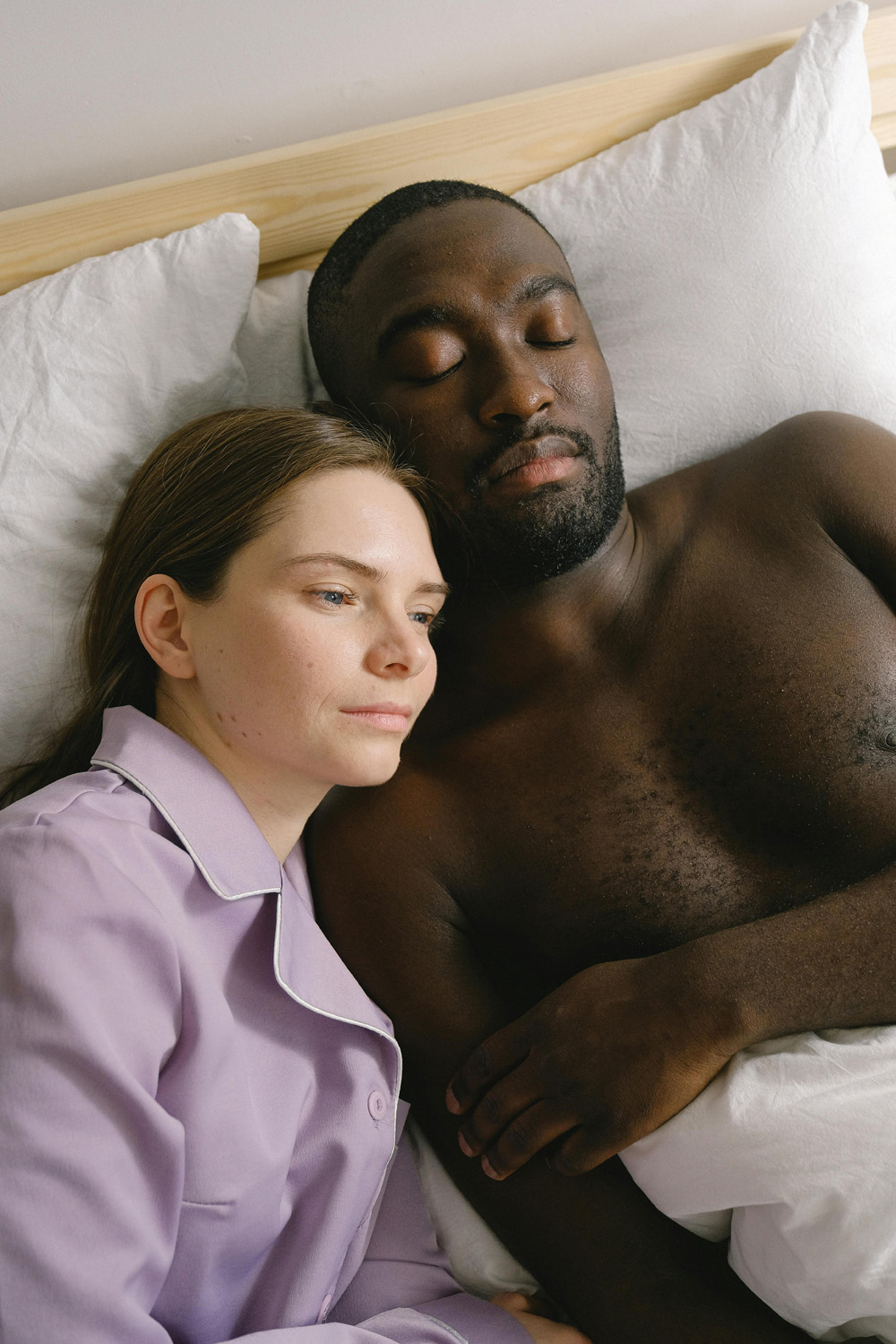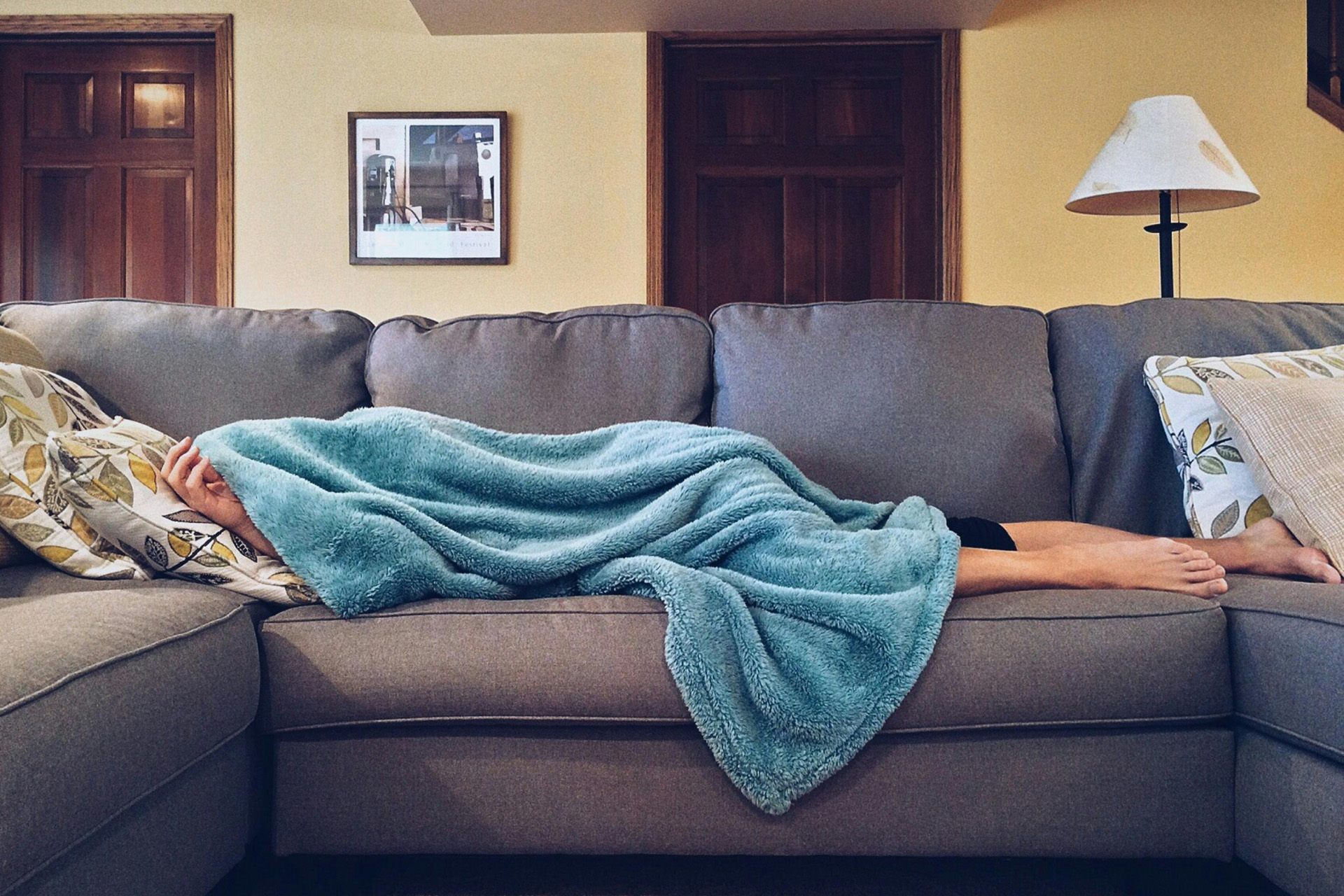
What Is A Sleep Divorce? & Is It Time To File For One?
By
1 year ago
Some people think it spells disaster for a marriage, other people swear by it
How did you sleep? It’s often the first question couples ask each other when they wake in the morning. If the answer is ‘awful, thanks to you,’ it might be time to take a step back. Co-sleeping can increase feelings of safety and intimacy in some couples, but others suffer poor sleep quality with the presence of another person, no matter how in love they are. Perhaps it’s time for a sleep divorce…
What Is A Sleep Divorce?
A sleep divorce is the practice of a romantic couple choosing to sleep apart rather than together. Typically, this is done to improve sleep quality, and many people swear by it, including celebrity couples spanning Victoria and David Beckham, Cameron Diaz and Benji Madden, Gwyneth Paltrow and Brad Falchuk, and Anglina Jolie and Brad Pitt (but, as we know, sleep divorce there is transitioning to divorce divorce).
What Are The Benefits?
According to the Sleep Foundation, there are five key benefits of sleep divorcing:
- Reduced sleep interruptions: No more disruptive snoring, twitching, tossing and turning, and no problems when someone needs to get up earlier than the other person.
- Improved sleep quality: Around 53 percent of sleep divorcees report their sleep quality increased after sleeping alone.
- Increased sleep time: Sleep divorcees sleep an average of 37 more minutes every night they sleep alone.
- Improved relationship: If poor sleep quality is putting a strain on the relationship, sleep divorced couples report an improvement in their relationship thanks to reduced hostility and anger which typically results from poor sleep.
- Safety: Some sleepers have dream-enactment behaviours like REM Sleep Behaviour Disorder; in this case, a sleep divorce ensures there’s no accidental harm from hitting, kicking and any other sudden violent movements.
What Are The Disadvantages Of A Sleep Divorce?
It’s not all rosy in the sleep divorced world. Drawbacks include:
- Increased cost: You need two bedrooms and two beds to have a successful sleep divorce which, naturally, not everyone has to hand.
- Reduced intimacy: According to the Sleep Foundation, a quarter of couples who try out a sleep divorce end up sleeping together again. For over a third, missing each other is what brings them back together, whether it’s feeling lonely at night or its having an impact on the couple’s sex life.
- Worsened sleep quality: Not everyone sleeps better alone, especially when used to having their loved one by their side. Forty percent of people who try a sleep divorce say their sleep quality improved when sleeping together again.
- Security: For people used to sleeping beside their loved one, suddenly sleeping alone can affect their sense of security, leading to lighter sleep as they remain in surveillance mode.
When Is It Time To Ask For A Sleep Divorce?
If you are getting low quality sleep and resenting your partner for it (for whatever reason), or if you and your partner have very different ideal sleeping arrangements, it might be time to ask for a sleep divorce. If you are regularly falling short on sleep, this can impact your quality of life, including increasing your risk of heart problems, weakening your immune system, slowing your metabolism, and making you more prone to car crashes and work errors.
Different Schedules
Different bedtimes and wake times can impact circadian rhythms, so if you are a night owl and your partner is an early bird (opposites attract, after all), then you might benefit from a sleep divorce. By sleeping in separate rooms, both of you can reduce the impact you have on each other’s sleep.
Sleep Preferences
Some people can’t sleep without white noise or a podcast playing, while others need total silence to sleep. Some people prefer feeling cosy in a soft bed while others prefer a firm mattress. Finding a middle ground will likely worsen the sleep quality for both, so getting a sleep divorce could be a good option so both parties can sleep in their ideal environment without negatively impacting the other.
Sleep Disorder
From sleep apnea to insomnia, one man’s sleep disorder is another man’s bother. If this is the case in your relationship, a sleep divorce might be the way to go so you both feel rested.
How To Ensure It Doesn’t Lead To A Real Divorce
Don’t Sleep Divorce On A Whim
Don’t just follow the crowd: if you’re considering a sleep divorce, sit down and really think about whether it is the best option. Have a candid conversation with your partner, and be frank with how it would make you feel to sleep apart. Before opting for a sleep divorce, experiment with tweaking your shared sleep environment to see if it can be made more conducive to each sleeper.
Make Time For Intimacy
A sleep divorce doesn’t have to lead to a sexless relationship, and making time for intimacy even while sleep divorced is key to maintaining a healthy relationship.
Sleep Together Sometimes
A sleep divorce doesn’t mean never sleeping together again. Try sleeping in separate beds sporadically before you commit to your whole new bedroom.
Make Both Beds Comfortable
A sleep divorce shouldn’t mean one party sleeps on the sofa. To get the most out of the new arrangement, both people should sleep in a proper, comfortable bed, made to their liking. This reduces any resentment, as both people have a good sleep arrangement and no one is having to make a sacrifice.
How To Avoid A Sleep Divorce
If you really don’t want to commit to sleeping separately but you’re starting to think it’s the only option, try the following before you take the plunge:
- Adjusting sleep schedules: If your sleep schedules differ out of preference rather than work schedule, try and make adjustments for each other.
- Try earplugs: If your partner’s snoring is keeping you awake, join the 15 percent of people who sleep with ear plugs.
- Sleep Scandi style: Before a sleep divorce, Scandi style sleeping is a must. This involves sharing the same bed but using different bedding, so sleepers can personalise the duvet tog, bedding texture, and have more freedom to move without disturbing their partner.
@bed.threads Replying to @ducky who else wants to try the Scandinavian sleep method?! 🙌 #BedThreads #linen #bedding #bedroomdecor #homedecor #sleephacks #lifehack #couples #coupletok #sleeping #tipsandtricks #sleeptips ♬ original sound – Bed Threads











